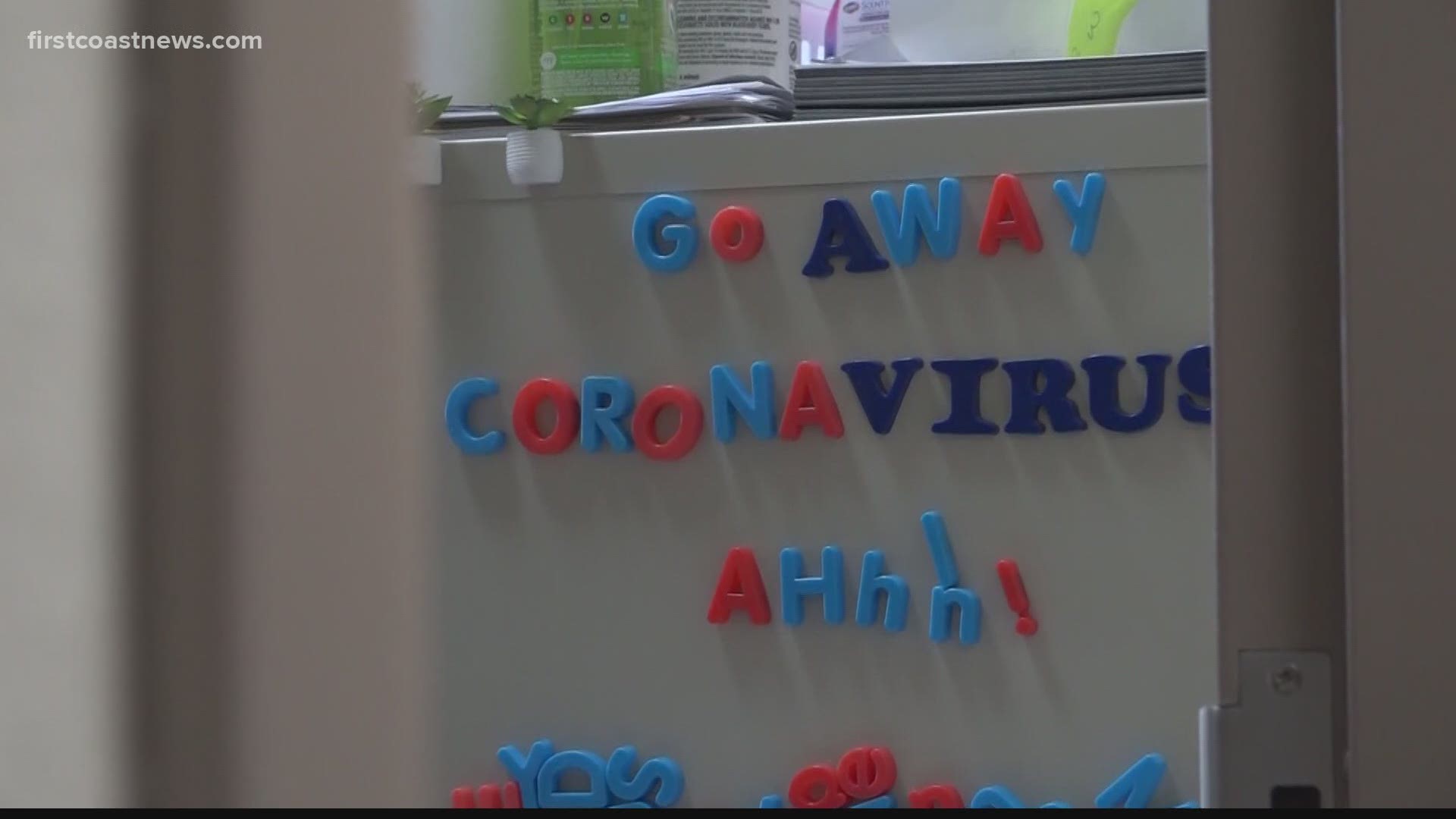Other diseases didn't go away because the coronavirus took over our attention, but lab research and clinical trials were brought to a halt.
Now more clinical trials are up and running and more research is happening in labs. People like Brendle Miller are grateful, saying they're responsible for her health now.
"I'm just waiting," Miller said about a clinical trial she would qualify for. "I'm just waiting for them to get them going."
Miller's congestive heart failure doesn't wait for the pandemic to be over. She goes to any clinical trial she qualifies for at the Jacksonville Center for Clinical Research.
"One I did for 21 days straight," she said.
Despite not even living in Jacksonville anymore, Miller is committed to doing the trials.
"It takes about eight hours but I drive myself," she said. "I was basically just barely existing until I came to the clinic. I have learned so much about my disease because of my association with the clinic."
The center is running 75 percent of the clinical trials they would normally do. Their research is needed, heart disease is responsible for one in every four deaths, the CDC reports.
"Sixty thousand people in the United States die of cardiovascular disease every month," said Dr. Michael Koren, the Jacksonville Center for Clinical Research director of research. "So if a new therapy gets introduced that reduces that risk by, say 10 percent, that's 6,000 lives saved that we're talking about."
That means halting research and slowing down the process to create something like a new therapy.
"Those are literally hundreds of thousands of lives that are lost," Koren said.
With medical research, lost time can mean lost lives. Education and awareness are a big part of clinical trials which is why researchers are working hard to make completing their research as safe as possible.
"We don't do research to publish papers and make presentations," said Dr. Alexander Parker, senior associate dean of research and director of Precision Medicine at UF College of Medicine in Jacksonville. "We do it to make the world a better place and when we have to slow down that's not good."
UF Health is in their phase two for getting researchers back to the lab. But outside the lab, research never stopped.
"People went home and continued to write up new ideas for specific cancers like head and neck cancer, breast cancer," Parker said.
They're working to improve healthcare for the next generation and those here now. Clinical trials and the education that come with them are already doing that.
"It got me off the couch because before I had no energy to do anything," Miller said about one trial she did. "All I did was get up out of bed, go to the couch, go back to bed."
It's stories like hers researchers work to make more of.
"We challenge our researchers every day when they come up with an idea to tell us how it's gonna make things different," Parker said. "Tell it in the story of a patient. How will the story for that patient be different?"
Parker says at UF Health during the quarantine, they had the most National Institutes of Health grant submissions they ever have.

